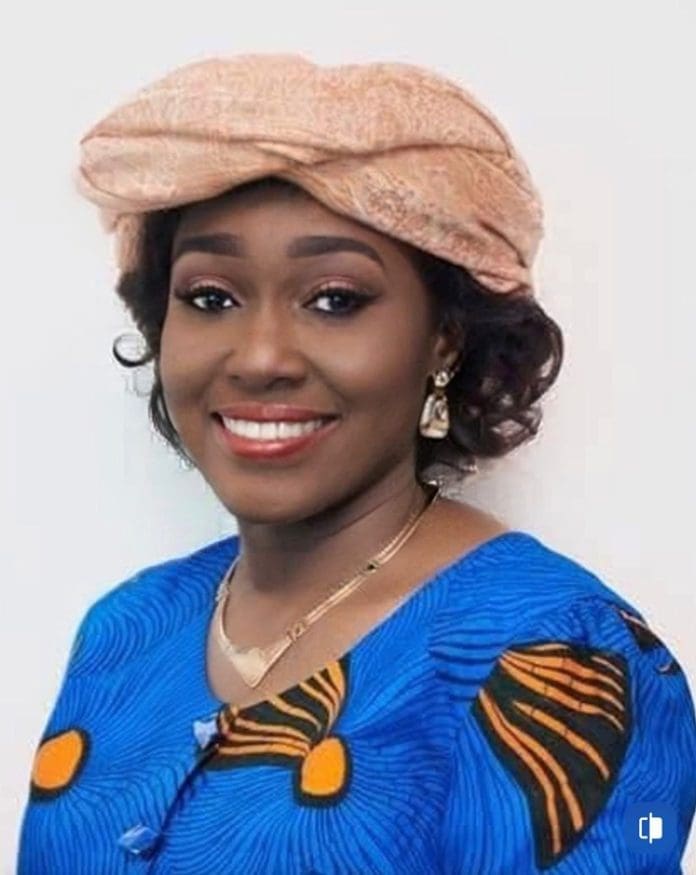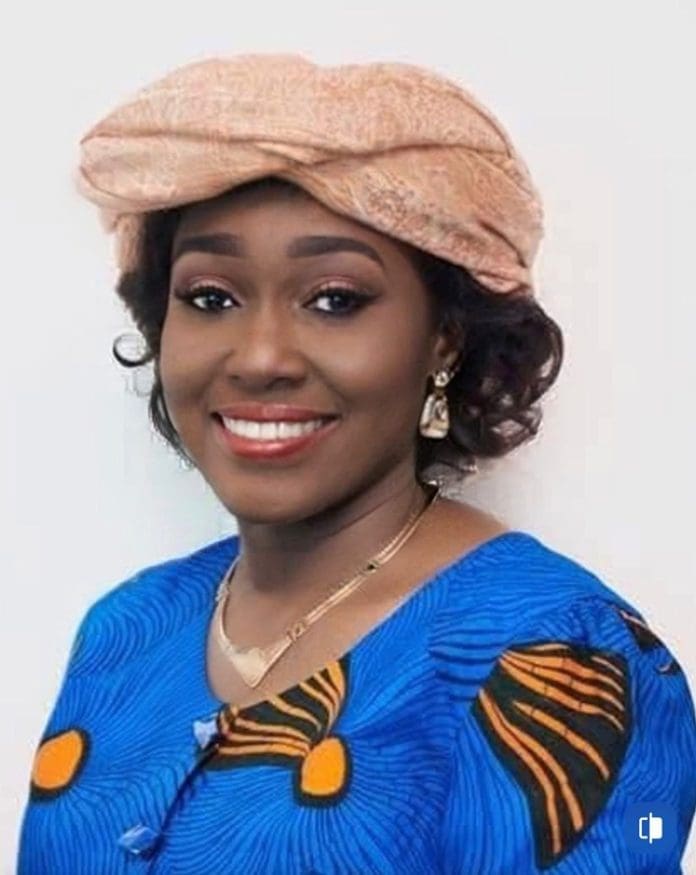
President John Dramani Mahama has announced that Ghana will accord Nana Konadu Agyeman-Rawlings a state funeral with full honors, recognizing her 19 years of service as the nation’s longest-serving First Lady and her pioneering work in women’s empowerment.
The announcement came Tuesday, October 28, 2025, when Mahama visited the Rawlings family residence in Ridge, accompanied by First Lady Lordina Mahama, Chief of Staff Julius Debrah, and senior government officials. It marked his first official visit to the family since receiving the devastating news from Zanetor Rawlings on Thursday morning.
“We are waiting for the family to meet to tell us what their desire is, but as president, I want to announce that we shall give her a state funeral,” Mahama declared. “The family can do a traditional funeral after the state funeral. Once we know what the dates are, we will do the programme and the state will give her the full honours that she deserves as our former first lady and mother of the nation.”
Nana Konadu passed away on Thursday, October 23, 2025, at Ridge Hospital after falling ill that morning and requiring urgent medical attention. She was 76 years old. Her death came as a shock to many Ghanaians who had seen her active in public just days earlier.
On Wednesday, October 22, just one day before her death, she attended a funeral service at Christ the King Church in Accra, accompanied by her son Kimathi. Before that, she had been seen dancing Borborbor at a wedding ceremony and attending another funeral in the Ashanti Region on October 9. Nobody who saw her at these events suspected anything was wrong.
President Mahama reflected on her sudden passing with visible emotion. “The last time I saw her, she was her lively self, full of energy and passion for the causes she cared about. To hear of her passing within such a short period is truly heartbreaking,” he said while signing the book of condolence at the family residence.
The president praised Nana Konadu’s enduring legacy, particularly her work through the 31st December Women’s Movement. “When you travel around the country, you see evidence of her work, oil palm extraction and production projects that continue to empower women and support families. Her efforts transformed livelihoods and gave dignity to women through economic independence,” he noted.
That assessment captures what made Nana Konadu more than just a ceremonial First Lady. She used her platform to create tangible economic opportunities for women across Ghana, establishing programs that outlasted her husband’s presidency and continue operating today.
Nana Konadu served as First Lady from 1979 to 2001 during Jerry John Rawlings’ presidency, making her Ghana’s longest-serving First Lady. In 2016, she made history as the first woman to run for President of Ghana, later founding the National Democratic Party after breaking away from the NDC.
That political break created lasting tensions within Ghana’s political landscape. Her departure from the party her husband founded was seen by many NDC members as betrayal, though others respected her decision to forge her own path. Even now, some NDC members are questioning whether the party should fully embrace her funeral arrangements, given that split.
But Mahama, himself an NDC stalwart who served in the Rawlings administration, clearly sees beyond partisan politics. He described Nana Konadu in the condolence book as “a record-setter” whose achievements during her 19 solid years as First Lady make Ghana proud.
The state funeral designation isn’t just ceremonial. It means government will coordinate the event, provide security, manage protocols, and ensure appropriate honors befitting a former First Lady. It also signals that despite her later political independence, Ghana recognizes her contributions to national development.
What remains unclear is exactly when the funeral will occur. The president indicated that dates depend on family discussions and decisions. Traditional funeral arrangements in Ghana can be complex, involving multiple ceremonies and rituals that require careful planning and coordination with extended family.
The announcement that the family can hold traditional rites separately after the state funeral reflects sensitivity to both governmental protocol and customary practices. It’s a compromise that allows the nation to honor her publicly while giving the family space for private traditional observances.
There’s also the delicate question of widowhood rites. The family’s lawyer stated after the court ruling on Daddy Lumba’s funeral that such decisions rest with the Abusuapanyin, the family head. For the Rawlings family, these decisions carry particular weight given Nana Konadu’s status and the public nature of her life.
President Mahama declared three days of national mourning following her death, stating “Nana Konadu was a woman of strength, grace, and conviction. Her contributions to Ghana’s democracy and gender equality are immeasurable”.
That tribute acknowledges something important about her legacy. Beyond being Jerry Rawlings’ wife, Nana Konadu carved her own political identity. She wasn’t content to smile and wave at state functions. She built organizations, launched economic programs, and eventually entered electoral politics herself.
Her relationship with the NDC remained complicated until her death. Some party members never forgave her for leaving and forming the NDP. Others maintained respect for her earlier work and her role during the Rawlings years. Mahama’s decision to grant a state funeral helps bridge those divisions, at least symbolically.
The 31st December Women’s Movement remains her most visible legacy. Founded during her husband’s revolutionary government, the organization promoted women’s economic empowerment, skills training, and community development. Its programs in palm oil processing, soap making, and other income-generating activities provided livelihoods for thousands of women.
Critics sometimes questioned whether the movement served political purposes alongside developmental ones, particularly during the PNDC and early NDC years. But even skeptics acknowledged that it created real economic opportunities and raised awareness about women’s rights when such conversations were less common in Ghana.
Nana Konadu’s political career beyond being First Lady started controversially. Her candidacy against President John Atta Mills in the 2011 NDC primaries divided the party and strained relationships with party leadership. When she lost, she left to form the NDP, taking some supporters with her.
That 2012 presidential campaign as NDP candidate was largely symbolic, she finished far behind the major party candidates. But it established her as an independent political figure, not just as Jerry Rawlings’ wife or the NDC founder’s spouse. She wanted to be taken seriously on her own terms.
Her relationship with her late husband Jerry Rawlings was itself politically significant. They were partners in revolution and governance, with Jerry handling the public politics while Nana Konadu often wielded influence behind the scenes. Some observers considered her the more strategic thinker of the two.
Jerry Rawlings’ death in November 2020 left Nana Konadu as guardian of his legacy. She participated in anniversary commemorations and maintained public visibility even as her own health reportedly declined. Her children, Zanetor, Yaa Asantewaa, Amina, and Kimathi, have largely remained out of day-to-day politics, though Zanetor serves as an NDC Member of Parliament.
The state funeral announcement ensures that whatever political controversies surrounded Nana Konadu’s later career, her contributions to Ghana will be formally recognized. She’ll be remembered as someone who used power to create opportunities for women, who challenged political norms by running for president, and who refused to be defined solely by her husband’s legacy.
For many Ghanaians, especially women who benefited from 31st December Women’s Movement programs, her death represents the loss of a pioneer. She showed that First Ladies could be activists and entrepreneurs, not just ceremonial figures. That model influenced how subsequent First Ladies approached their roles.
The funeral planning now begins, coordinated between government and family. There’ll be lying in state, possibly at the Accra International Conference Centre. Military honors. Tributes from dignitaries. Media coverage reflecting her national significance. All the elements that mark a state funeral for someone who served Ghana at the highest levels.
And then, after the state ceremonies conclude, the family will hold their traditional rites. That’s when the private mourning happens, when cultural customs get observed, when the family says goodbye in their own way. Both are necessary. Both honor different aspects of who Nana Konadu Agyeman-Rawlings was.
President Mahama’s visit Tuesday accomplished what it needed to. It showed respect. It announced state support. It began the process of national farewell. What comes next is executing a funeral befitting Ghana’s longest-serving First Lady, a woman who spent decades trying to improve lives, especially for women who rarely had powerful advocates.
Whether you agreed with her politics or not, whether you supported her break from the NDC or not, there’s no denying that Nana Konadu Agyeman-Rawlings left her mark on Ghana. The state funeral acknowledges that contribution. The traditional rites will honor the woman herself. Together, they’ll provide closure for a nation saying goodbye to a complicated, pioneering, undeniably significant figure in Ghanaian history.
